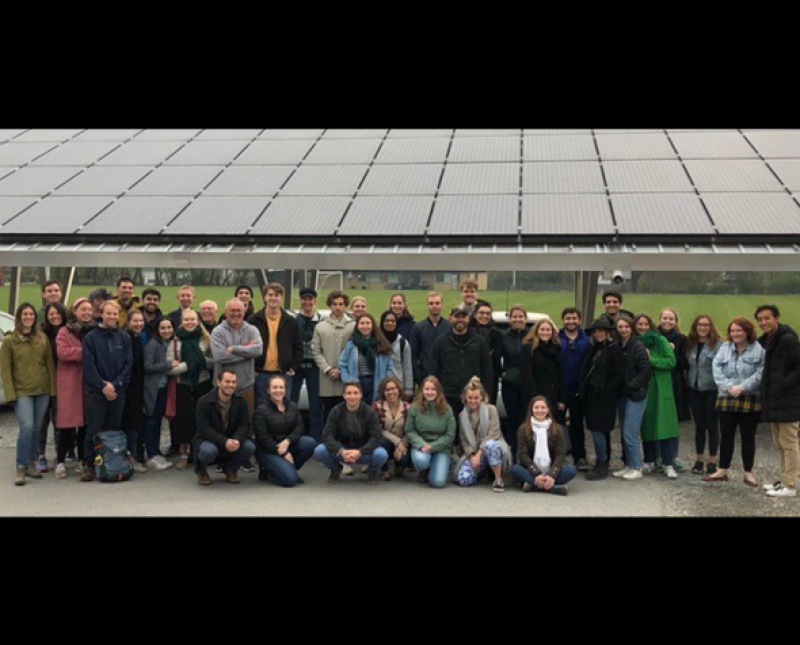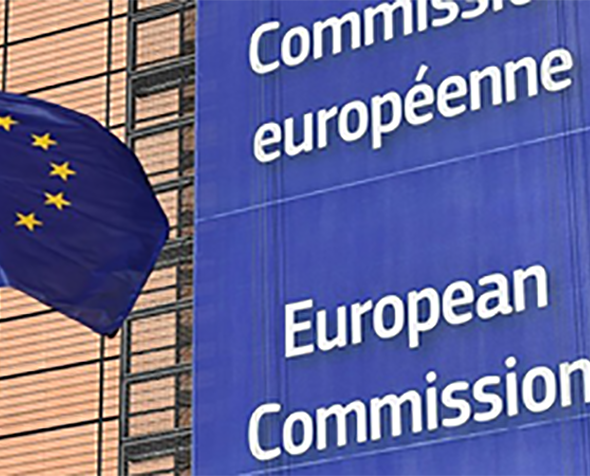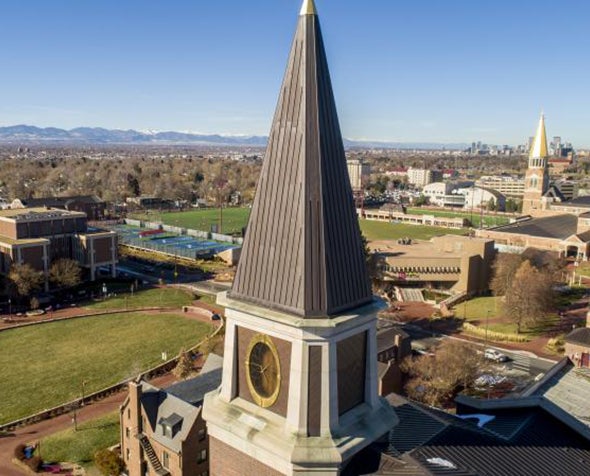EU-US Comparative Climate Change and Energy Transition Law

In the spring 2019 semester, 15 University of Denver Sturm College of Law (SCOL) students finished the first ever law school course co-taught live by professors in Denmark, Norway, and the United States. The course, “EU-US Comparative Climate Change and Energy Transition Law,” included 15 students each from the universities of Copenhagen, Denver, and Oslo. Fifteen different countries were represented in the 45-student total.
The course consisted of 10 two-hour sessions videocast live to classrooms in Copenhagen, Denmark, and Oslo, and a final one-week gathering of all students and professors in Denmark.
The groundbreaking new course was made possible by a €300,000 grant from the European Commission. Among other things, the grant provided funding for all students to travel to Copenhagen.
The course objective was to “bring together” American and European students in one “virtual” classroom to learn about comparative strategies in the forms of law and policy to address climate change and the transition from fossil fuel to renewable energy. Colorado, Denmark, and Norway are key leaders in this effort in the EU and US respectively.
From August 2018 through January of this year, course materials (some from Europe and some from the US) were identified and the syllabus was jointly developed. Attention had to be paid to the respective administrative requirements of each university during this stage of course development.
In addition, during this period, the course video conferencing procedures and a customized webpage was developed by Jessica Hogan, director of the SCOL Educational Technology Department, and her staff. In January multiple “test runs” of the video conferencing software were made with the three universities.
The first live session took place on February 4. Subsequently through April 1 students would assemble in their classrooms in Copenhagen, Denver, and Oslo. Class began in Denver at 8.15 am and in the European classrooms at 4.15 pm, the eight-hour difference reflecting the two world time zones where students were gathering.
In addition to hearing lectures from Professors Catherine Banet (Oslo), Beatriz Martinez Romera (Copenhagen), and Don Smith (Denver), students were organized into cross-university groups to research and generate presentations and papers on key climate change and energy transition issues. The group presentations – seven to be precise – were delivered before the entire gathering of students and professors as well as members of the Copenhagen law faculty in Copenhagen on April 22.
The following day students attended a conference of leading Danish energy experts for consideration of how Denmark has become a world leader in reducing carbon emissions while implementing a widely-praised transition to renewable energy.
The week in Denmark was completed with a field trip to the Samsø Island Energy Academy, which has a worldwide reputation for helping communities work towards renewable energy solutions. Samsø Island is the world’s first completely renewable energy-powered island.
The highlight of the field trip was a bicycle tour of the Energy Academy’s projects on the island led by academy CEO Søren Hermansen.
The importance of the collaboration between the three law schools and the University of Colorado Graduate School, which houses Felicia Martinez, director of the European Union Center of Excellence at CU, was not lost on the 45 students. After returning to Denver in early May, one of the DU students described the course as “the greatest experience of my life thus far,” adding, “I have made connections that will undoubtedly last a lifetime.”
Don Smith, Associate Professor of the Practice of Law at the Sturm College of Law, said, “The four institutions – Copenhagen, Denver, Oslo, and the University of Colorado – that collaborated to make this course a reality along with the European Commission aimed to deliver a unique and ‘bridge building’ opportunity for students to learn about strategies for dealing with climate change and the transition to renewables. But perhaps even more than that, the course was designed to help students establish personal and professional connections that will benefit them as they prepare for their own careers.”
In 2020, a new student group from each university will gather for the 10 video conferencing sessions and then travel to Denver the final week of April for a series of presentations, lectures, and a field trip. In 2021, the final year of the three-year program, everyone will meet in Oslo for the final week of April.





